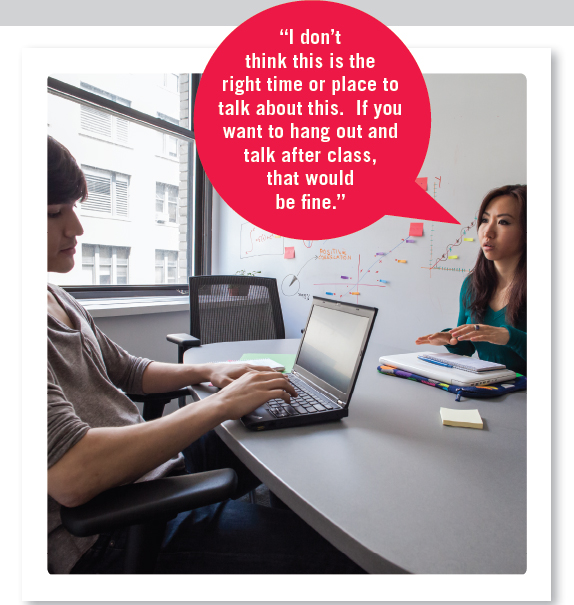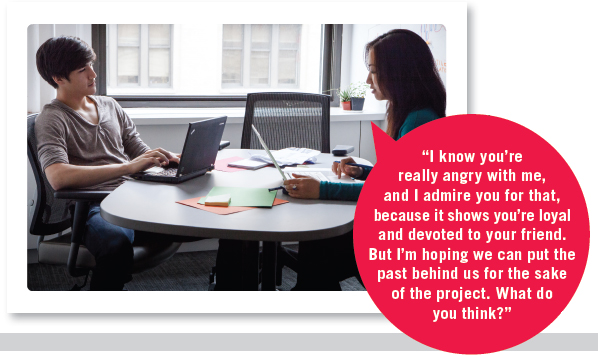HOW TO COMMUNICATE | Video Skills
HOW TO COMMUNICATE | Video Skills
COMPETENT CONVERSATIONS
One way to improve your communication competence is by adapting your messages to others' behaviors. Learn how to navigate difficult conversations by going to LaunchPad at bedfordstmartins.com/choicesconnections and completing the How to Communicate video scenario for Chapter 1 to practice your skills.
CONSIDER THIS:
Your professor assigns you to work with Jacob, your ex's best friend. When you and your ex were dating, Jacob was friendly and supportive, and the two of you got along well. But the breakup was ugly, and you and Jacob haven't talked since. As you meet with Jacob to brainstorm ideas, there's obvious tension. You decide to break the ice and ask him how he's doing. Jacob responds with an icy “Fine,” then says, “So, have you destroyed any new lives recently?”
WHAT WOULD YOU DO?
The following advice illustrates how competent communication skills can keep the encounter productive. As you watch the video, consider how the dialogue reflects each element of competence. Then, test your knowledge of key skills, and create your own responses to the What if? video prompts.

1 KEEP YOUR COMMUNICATION APPROPRIATE, given the setting, by not angrily responding to Jacob's taunt and by offering an alternative encounter for personal discussion.

2 COMMUNICATE EFFECTIVELY by keeping your conversation focused on the task at hand and by encouraging Jacob to do the same.

3 MAKE YOUR MESSAGES ETHICAL by treating Jacob with kindness and respect, despite his rudeness.
WHAT IF? But what if things don't work out as shown? Test your ability to adapt your communication by watching the What if? videos below and planning how you would respond in each situation.
- What would you say when Jacob attempts to end the encounter by saying, “I have no interest in talking to you—whether it's now or later”?
- When Jacob says, “Yeah, I can see why you'd want to leave the past behind. That's what you do, isn't it: destroy people, bail, and then say, ‘Can't we leave the past behind?'”